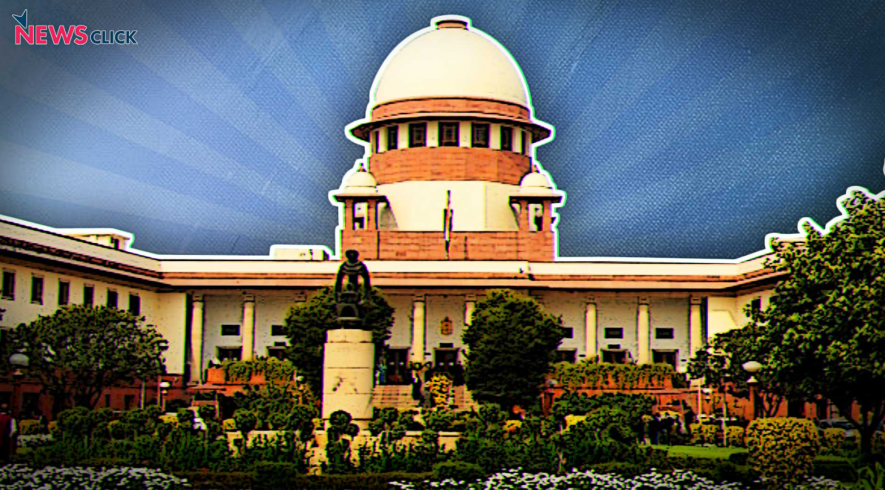Standing by the Bar

On April 2, an unusual occurrence in the court of Justices Bela M. Trivedi and Satish Chandra Sharma in the Supreme Court exposed certain fault lines in the functioning of our courts.
In a matter stemming from a case under the Scheduled Castes and Scheduled Tribes (Prevention of Atrocities) Act and other offences under the Indian Penal Code, the bench demanded accountability from the Advocate-on-Record for his absence from a previous hearing on March 28, 2025 and called for an explanation for his absence with a travel ticket to prove that he was indeed visiting his village. The Bench had also noted that certain incorrect statements were made in the petition.
Senior Advocate S. Nagamuthu, who was present in the court regarding a connected matter, had also informed the Bench that the concerned AOR was indeed visiting his village. However, the Bench did not believe the Senior Advocate and proceeded to direct the AOR to appear before the Bench on April 1, 2025 with a copy of his travel tickets.
While being respectful in court is a must, sycophancy is not something that should be naturally expected from lawyers in a courtroom.
On April 2, the concerned AOR appeared in person before the Bench and produced the tickets to establish the truth of his whereabouts.
One would have expected the matter to end there, but it did not. Justice Trivedi, perhaps rightly so, demanded an explanation for some of the contents of the Special Leave Petition (‘SLP’), which she described as incorrect statements, and started dictating an order documenting the shortcomings in the SLP.
At this point, office bearers of the Supreme Court Bar Association (SCBA) - Senior Advocate Rachana Srivastava (Vice President) and Vikrant Yadav (Honorary Secretary) and the office bearers of the Supreme Court Advocates on Record Association (SCAORA) - Vipin Nair (President) and Nikhil Jain (Secretary), interceded on behalf of the AOR in question and requested the judge to refrain from dictating a detailed order which may damage the professional reputation of the AOR.
In the end, in deference to their intervention, the bench refrained from dictating a detailed order and instead directed him to file an affidavit and directed the Petitioner to appear in person on the next hearing.
The incident brings to the forefront the problems with a hierarchical arrangement between the Bar and the Bench, in which the judge plays a dominant role in matters relating to the behaviour expected from lawyers in court. While being respectful in court is a must, sycophancy is not something that should be naturally expected from lawyers in a courtroom.
Unfortunately, traditions of sycophancy encouraged over the years are hard to shed. There is an absence of mutually accepted protocols of interaction between lawyers and judges professionally. For this absence of a frank dialogue and ‘mutual’ respect for each other, the judiciary is as much responsible as the Bar. Today we see an arrangement where respect is expected unilaterally. These are very unequal terms of engagement.
It is not surprising, therefore, to see responsible members of the Bar stand up for their colleagues, and for this, they have to be congratulated in a fulsome manner. When respect is not mutual, resistance is natural.
The Bench ought to have trusted the statement made by Senior Advocate and former judge of the Madras High Court S. Nagamuthu that the AOR was indeed travelling to his village in Tamil Nadu. The need to call for the copy of the travel tickets was wholly uncalled for. It is the tradition at the Bar and the norm to lay faith and belief in statements made at the Bar by senior counsels on such matters.
Justice Trivedi said, while parting, that judges are drawn from among lawyers and change must begin there. While that is a fair observation, such changes can only occur when there is truly free and frank dialogue between the Bench and the Bar. Deploying disciplinary powers in individual cases does not resolve this issue. Sharp practices must be listed out and banned in legal proceedings
The relationship between the Bench and the Bar is a difficult one in that lawyers are expected to keep a distance from judges before whom they appear. At the same time, lawyers need to communicate with the bench. Judges must decide the transparent and forthright measures of communicating with the bar in a transparent manner on issues which concern both the bar and the judiciary.
A good beginning has been made with respectful and successful resistance to the passing of a premature order without due process of law against a professional colleague.
Representatives of the Bar made it clear that they were not commenting on the merits of the case, which would be done in due course by the advocate concerned, but only pointing to his right to be heard before any action was taken against him. It is the nature of the judicial function to hear both sides before recording any findings.
Get the latest reports & analysis with people's perspective on Protests, movements & deep analytical videos, discussions of the current affairs in your Telegram app. Subscribe to NewsClick's Telegram channel & get Real-Time updates on stories, as they get published on our website.























